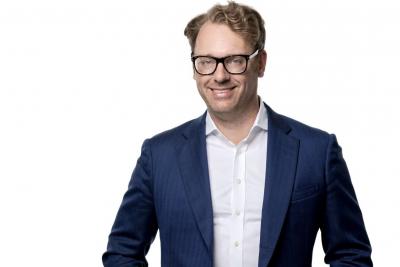After the (FTX) Storms - the Future for Cryptos and Digital Assets in Wealth Management

Oliver Linch of Bittrex Global
Jan 15, 2023
On November 15 at the Hubbis Digital Wealth Forum in Dubai, the last panel discussion of the event zeroed in on the outlook for the universe of digital assets. The experts drilled down into the collapse of crypto exchange FTX, the crisis in cryptocurrency prices (Bitcoin is down about 75% from its November 2021 peak and would need to rise about 290% to get back to that all-time high), and the collateral damage and rumoured demise of other platforms. Their conclusions were that this is a phase of major bloodletting that will see the entire corpus of digital assets contract, consolidate, and then strengthen in time. They argued that the FTX type debacle has been seen numerous times in the world of centralised finance, and that henceforth there will be a flight to quality exchange, brokers, advisories, custody providers and that people will be far more selective about the cryptocurrencies, coins and tokens they invest in, and the operators in which they put their trust. They maintained that the institutionalisation of the investor market for digital assets had been continuing its momentum throughout the past year as prices slumped, and that their involvement might slow until the ramification of FTX play out, but then continue well into the future, and that future will prove to be more risk-management, more and better regulated, and the industry itself will be increasingly well self-governed. One such expert was Oliver Linch, CEO of Bittrex Global, who shared his insights as part the panel on the day.
Moderator: Please describe in brief who you are and the business you represent, and why you are involved in this digital assets universe?
Oliver Linch: “I am the CEO of Bittrex Global. My background is as a lawyer, and I spent over a decade at global law firm, Shearman & Sterling, based in London, New York, and out here in the Middle East, working in financial services and regulatory law. I spent a fair amount of time out in the UAE, mostly in Abu Dhabi actually helping set up ADGM. And then, about a year ago, just over a year ago, I realised that the combination of my financial services regulatory experience focused on traditional markets, and the work I was doing out here in FinTech, should all lead me to crypto, so I joined Bittrex Global in November 2021 as General Counsel. And then earlier this year, the former CEO stepped down, and I took this role.
Bittrex was established in 2014 in Seattle and is one of the biggest global cryptocurrency exchanges, and we pride ourselves on being the world’s most secure regulated digital assets exchange. We are one of the big, original players in crypto markets. By around 2018, our global footprint got so big, that it made no sense to keep running out of the US, so we set up what became Bittrex Global, based in Liechtenstein and Bermuda, and with the ethos that we carried over from the original days of being regulated and that is certainly the way the world has been moving.
Everyone now says that they believe in the proper regulation of crypto. More than just saying it, we have been living it. So, when we set up Bittrex Global, we became regulated in the EEA, in Liechtenstein, the first country in the EEA to provide a substantial regulatory regime for crypto. And then we wanted to offer a global offering out of the EU, and we got ourselves regulated in Bermuda, really the first jurisdiction in the world to take crypto regulation seriously. So, proper regulation and governance has been core to our proposition from the very beginning.
Today, you can trade pretty much every digital asset out there on our exchange, and we offer the highest number of tokens of any regulated exchange in the world. Our ethos is based on those three pillars of innovation, security, but perhaps above all, especially for in this room, regulation.”
Moderator: We have all heard of other names – both centralised and decentralised cryptocurrency exchanges and other participants - that have had problems, or that might have troubles. Bittrex is a centralised exchange at the moment, so how are you discussing and approaching all this internally and with your clients?
Oliver Linch: “There are a couple of points I would make. The first is that the sector is evolving all the time. The centralised to decentralised line is becoming more blurred all the time. But I will say that there is still a very strong history and case made for centralised exchanges and centralised participants, as a mechanism for introducing people to crypto and a mechanism for a certain type of investor.
I suspect that many people in this room that want to get into crypto, but in a way that has an analogy and link with traditional finance, to have more of an identical track in terms of how things are done, in recognisable terms for the end clients. Centralised exchanges such as Bittrex Global allow you to do that.
The question then is whether the rules that those exchanges are playing by are fit for purpose. And are the regulators that are enforcing those rules enforcing them in a way that allows people to have confidence? FTX and the fallout from that is going to rock the confidence of a lot of those people. But what we are seeing already is people still see there is something very significant going on with crypto, so they want to find out how to do it safely, and I believe centralised exchanges have a really important role to play there.”
Moderator: How are you communicating in a moment to them, and how do you see what is happening now impacting crypto investment? Is it going to slow down the adoption? Or what is likely to happen?
Oliver Linch: “I agree. And I think the importance of the institutions now is probably greater than ever, because what institutions are good at is identifying and managing risk, whereas individuals can be quite bad at that. But institutions have mechanisms, have models built up over many years, decades of experience, and are looking for opportunities to apply those models in particular scenarios.
We will certainly see in the short term some taking of the foot off the accelerator, and maybe in some cases, slamming on the brakes. But actually, the institutional side of things has been the big story of the bear market in crypto. And this is another disruption in the middle of what is likely to be a longer bear market, at least another few months.
It is worth noting that throughout the down phase [until FTX’s collapse] the institutions have held up and in fact, they have strengthened their position in crypto. They see it as something that will stay, that is genuinely disruptive, particularly the blockchain distributed ledger technology, which is genuinely disruptive.
And as these institutions, big banks, wealth and asset managers, pension funds and other begin to get their teeth into it, they can then apply their trading strategies, their risk modelling to this industry, which will actually force the crypto industry to grow up faster.”
Moderator: What are your final comments and what will the potential catalysts to change the sentiment in the market to a more positive phase?
Oliver Linch: “Everyone that has an interest in crypto, and everyone that is a participant in crypto, actually has an obligation in a sense to challenge service providers, exchanges, token issuers, and to drive towards better standards, better practices, better regulation, and so forth. It is up to us as an industry, as a community to help drive these issues forward, to demand better standards, to understand how players are regulated, to understand where the risks are and to build confidence throughout the ecosystem.
I think what we're seeing, and what we'll probably see as a result of FTX’s collapse and the fallout, is a rising intensity around all those questions, a doubling down on risk assessment and standards. It is all very well to find a friendly regulator somewhere in the world, that will say ‘sure, you're regulated because you paid some money and we have you on our register’ but frankly, that is really not good enough. It never was good enough and it certainly will not be in the future. If any platform states they are regulated, the questions must be ok, but who regulates you and how are you regulated, and can we really trust you?”

Chief Executive Officer at Bittrex Global







